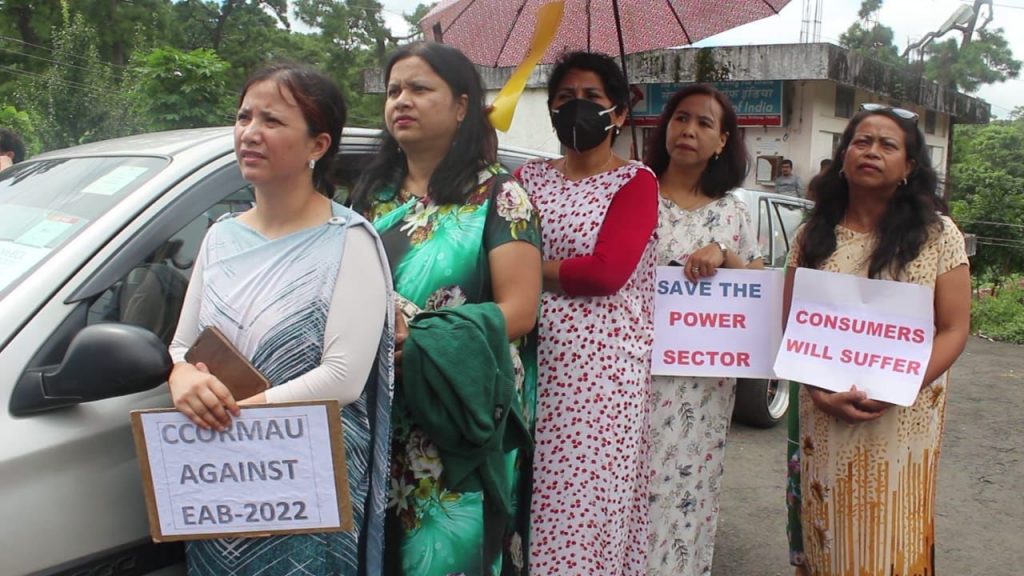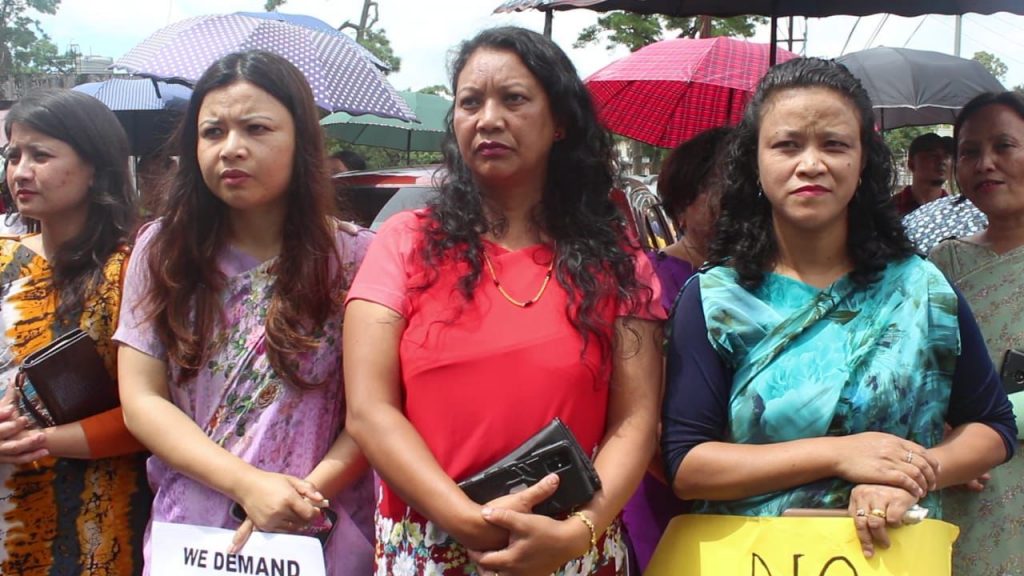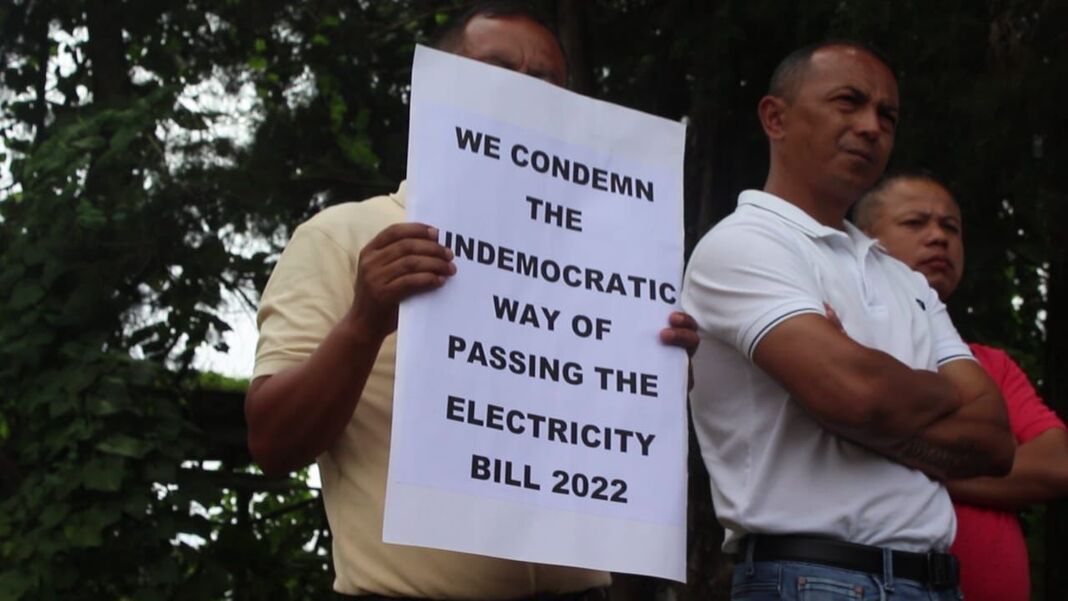Shillong, Aug 8: The employees of the Meghalaya Energy Corporation Limited (MeECL) under the aegis of Coordination Committee of Registered MeECL (Employees) Associations and Unions (CCORMAU) on Monday joined the nationwide protest and staged a protest by stopping their works for two hours at Lumjingshai, Shillong, to strongly oppose the amendments planned by the Centre to the Electricity Act by introducing Electricity (Amendment) Bill, 2022 during the ongoing monsoon session of Parliament.


The decision was taken during an emergency online meeting of the CCORMAU held on Sunday in support of the resolution adopted by the National Coordination Committee of Electricity Employees and Engineers (NCCOEEE) during its national convention held in Delhi on August 2.


Speaking to reporters after the protest, president of the coordination PK Shullet said that the Central government has brought the bill to Parliament by rushing through the Monsoon session even though the Electricity Bill doesn’t figures on the list of bills to be passed in the House. He also informed that this bill has been kept on-hold for many years.
“It is very unfortunate that the central government has suddenly decided to press this bill on this Monsoon Session and to get it passed,” said Shullet.
“On passing of this Bill it will change the concept of distribution companies and it will be risky for the consumers… the distribution companies will be given permission only by registration and within 60-70 days if the permission is not granted it will be deemed accepted and they can started supplying power like any other utility,” said Shullet.
With the passing of this Bill, private companies can come and supply electricity in the State along with the MeECL and this will affect the consumers, he added.
He further said that with the availability of private companies, cherry-picking process will exist and, in the process, the regular non-subsidised consumers will be up for the private companies and the subsidised (poor) costumers will be left with the State utility, i.e. the MeECL, and it will affect the State exchequer.
This Bill has a provision for harsh penalty if any of the utility doesn’t comply with the Renewal Purchase Obligations, further informed Shullet.
“Most renewable energies are being produced by private companies and by having this provision the State will be bound to purchase power from these private parties and this will have an adverse impact on the State financial situations,” he added.
On being asked, Shullet informed that the next course of action will be on the direction of the NCCOEEE.




